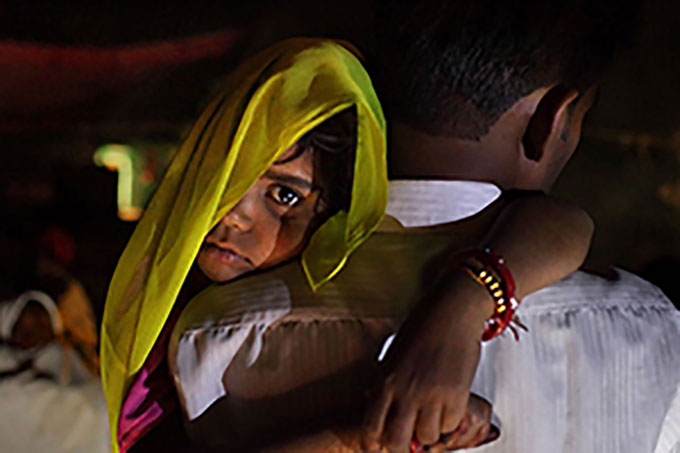News
Girl Summit aims to end child marriage and FGM/C
- 22 July 2014
News
UNITED NATIONS, New York – Despite the advances made in promoting human rights, girls remain among the most vulnerable people in the world. In developing countries, one in three girls are married before reaching age 18, despite the fact that this practice has been widely outlawed. Approximately one in nine girls are married before reaching age 15. Additionally, some 125 million girls and women have been subjected to female genital mutilation/cutting (FGM/C), most of them before age 15.
These practices are human rights violations – yet they are widely accepted, and even embraced, in many parts of the world. FGM/C, for instance, is widely performed in more than 29 countries.
Today, on 22 July, UNFPA is participating in the Girl Summit, an event in London bringing together leaders and activists to mobilize efforts to end to child marriage and FGM/C within a generation.
Girls’ rights are human rights
“Discrimination and harmful traditions such as child marriage and female genital mutilation/cutting persist,” said UNFPA Executive Director Dr. Babatunde Osotimehin in a recent statement, “and the perpetrators operate with impunity, even in the face of laws against such practices.”
Child marriage and FGM/C both help to perpetuate girls’ low status by impairing their health and long-term development.

Girls married while underage are often forced to drop out of school. Many become pregnant while still adolescents, putting them at increased risk of injuries and even death: Some 70,000 adolescent girls die every year from complications related to pregnancy and childbirth.
Similarly, FGM/C can lead to haemorrhage, infection, physical dysfunction, obstructed labour and death.
UNFPA – together with the UN Children’s Fund – is the UN’s lead agency in addressing child marriage and FGM/C. With partners, UNFPA works to empower girls and communities to abandon these harmful practices.
Empowerment is key
Kadiga Mohammed, 18, learned about the harmful effects of FGM/C and child marriage through a UNFPA-supported programme in the Afar Region of Ethiopia. Years before, she had been subjected to FGM/C, and her parents tried to force her into a marriage at age 16. But after learning about her rights, Kadiga was motivated to stand up for herself and other girls.
“I will never subject my child to FGM/C if she happens to be a girl,” she said, “and I will teach her the consequences of the practice early on.”
Supporting girls’ human rights is also a key way to promote development. Girls who are healthy and educated are more likely to escape poverty, benefitting their families and communities, as the experience of 24-year-old Salamatou shows.
“When I was 16, my parents wanted to marry me off to a 50-year-old man,” she told UNFPA. “I rebelled immediately. I wanted to continue my studies.”
Salamatou lives in Niger, a country with one of the highest rates of child marriage in the world. She was in secondary school at the time – a feat in a country where 57 per cent of girls aged 10 to 14 are not in school at all. “At the time I was the only girl in the village to reach this level, and I wanted to become a midwife to help the women in my community.”
With the help of community leaders and her older brother, she convinced her parents to cancel the marriage. She went on to fulfil her dream of becoming a midwife, and she is now helping to change attitudes in her community. “They finally understand,” she said. “Even my parents understand, because they see that I have a job and a bright future. They are very proud of me!"
Committing to change
The Girl Summit will encourage governments, civil society and others to commit to eliminating these harmful practices.
UNFPA announced it will devote $276 million to address the needs of adolescents and youth, especially adolescent girls, between now and 2017.
Such efforts are beginning to build momentum for change. “In 2013, over 4,000 communities declared abandonment of female genital mutilation/cutting compared to 1,677 in 2011,” Dr. Osotimehin has said.
“It is vital that we uphold the rights of women, girls and all young people,” he added, “for their own dignity and well-being, but also because doing so is the key to meeting any future development goals.”